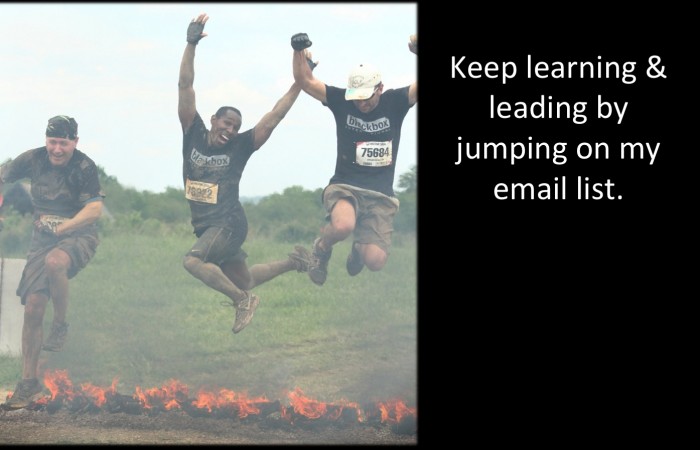Matthew 28 Launch
Written by Brian Jennings, Posted in Your Church
Note: This is rough manuscript (my sermon notes) from January 5th (a very cold & icy day). We did not have time to polish it up so expect a few typos and errors. But we felt like the content was critical for people to know, since it introduces our things we’ll be building on for months. You can also download a PDF, and you can listen to the sermon audio.

Sermon Intro: The demon is in too deep
Dr. Martin Lloyd-Jones preached in London and he said something incredibly relevant all the way back in 1959. He said that, just as the disciples were unable to remove a certain demon with their usual methods, so we are unable to “remove the demons” leading our culture astray, with the usual methods.
Our society has problems that Jones saw 60 years ago in Europe.
We have a truth problem – It is no longer taken for granted that the Bible is true or good.
We have a guilt problem – people no longer feel guilty for many sins.
We have a meaning problem – Explaining the Gospel in 3-4 easy steps is not enough.
People seek to be part of something that is beyond individualistic. (By the way, the Bible gives this to us, but people may not know it). There is a larger narrative that people do not know: Creation, Fall, Redemption for you and for all who will respond.
Tim Keller asks, “What evangelistic practices will change our world?”
- Great Awakening-Billy Graham…Few think this style is the way to future evangelism.
- By the 70s-80s is was training for personal evangelism.
- 90s the Seeker Service…. But who is looking at this to turn the tide.
- The training formats seem closer but’s it’s still programmable
So what is the answer?
We don’t pretend to have it all figured out, but we do know that it involves all of us. It involves discipleship. It involves followers of Jesus helping others follow Jesus.
And discipleship is exactly what the Matthew 28 Project is all about.
Last Words
Pretend that a Doctor has just said, you only have a few more minutes to live; so your family and closest friends gather around, you motion for them to come close so they can hear you, you struggle to sit up in bed, clear your throat and say…
-“My family, whatever you do, drive a cool car.” Nope, not what you would say.
-“My loved ones, Please, spend more time watching television.” Nope
-“Friends, Never get help for your problems. They are not that big of a deal.” Nope
-“Dear children, spend less time with your friends and family.” Nope
-“Beloved, steal the copper from air conditioning units.” I hope not
I asked people, “What do you hope your last words are not?” and I got some great answers.
-“He doesn’t bite does he?”
-“I think you all are overreacting.”
-“I’m coming like a wrecking ball.” (any Miley Cyrus lyrics fall under this category)
-“Yes, I’d like fries with that.”
-“Don’t worry guys, I got this.”
I hope my last words are not griping at a kid for scraping his bike into my car. We want our last words to matter. And if we know our time is about gone, it’s more likely we could say what matters most.
So when Jesus was with his disciples, he knew he was about to exit. Jesus made the most of all of his words, but we have to assume that his last words carry a lot of weight.
Read Matthew 28:18-20
The key Action Verb, a command, is to MAKE DISCIPLES. This happens through
Going into all the world (ethnos); literally, “all peoples” or “all people groups”
Baptizing them
Teaching
To be a disciple of Jesus means To follow Jesus life, his commands, his cause.
All four Gospels emphasize this idea towards the very end of each book:
Mark 16:15-16, “He said to them, “Go into all the world and preach the gospel to all creation.”
Luke 24:47-48, “Repentance for the forgiveness of sins will be preached in his name to all nations, beginning at Jerusalem. 48 You are witnesses of these things.”
John 20:21 “Peace be with you! As the Father has sent me, I am sending you.”
And as the Gospels end, Act begins. If you have your Bibles, please turn there.
About the author
TV shows with thick plots usually begin the same way, “Previously on Lost.” And then they quickly recap what has just happened so that new viewers can get up to speed.
Luke does something similar. Luke is the author, and it’s easy to see that his two books are intended to go hand in hand. Volume 1 and Volume 2.
A few things you should know about Luke:
- He was a Gentile. He gives lots of attention to those considered to outsiders, to the poor, the oppressed, to women and to other Gentiles & Samaritans. The idea that God was available to people, not just an inner circle of Jewish men, was a game-changer for Luke.
- He was a physician. His details, historical accounts and writing style reflect a man very knowledgeable of culture, logic, geography, politics, literature and history.
- His writing is consistent.
- The Gospel of Luke begins with Jesus’ birth through the work of the HS.
- Acts begins with the church’s birth through the work of the Holy Spirit.
- The Gospel of Luke ends with the 5 trial of Jesus.
- The book of Acts ends with the 5 trials of Paul.
- He writes both volumes to Theophilus, which means “lover of God.” His intention seems to give an accurate, effective, God-inspired account of Christianity, beginning with Jesus and extending to the early church. And he gives this account to a friend or acquaintance, but intends it for a much bigger audience. Including you and me.
Acts 1
Read 1:1-3
While the Gospel of Luke leaves off with the resurrection and ascension, Acts picks it right back up so we are prepared to move forward.
The Gospels end with Jesus commanding us to carry out his mission. Acts shows us how.
You see, Jesus mission is not just for you to individually be saved. That’s only part of it. His mission is for you, to be the church and launch out to save the world. That cannot be over-emphasized enough.
Read 1:4-8

The book of Acts follows Jesus’ geographical outline: Jerusalem first; then chapters 8-12 move outside to Judea & Samaria; and then chapters 13-28 to the ends of the earth.
God’s desire is for all ethnic groups, all people groups, all over this planet, to hear the good news that God came to rescue, to heal, to help, and to give them purpose. All people!
It’s why HP is committed to global efforts.
“Witness” is where we get the word “martyr.” Woa, hold on a second. It’s one who testifies on behalf of another based on what they’ve seen and heard.
“Witnesses” is an active noun, kinda like the word “swimmer.” It means someone is DOING something.
Note: You are pointing people to someone/something.
Discipleship
A few months ago, some leaders from Highland Park Christian Church entered a space of vulnerability with each other. We were discussing discipleship (the process of helping someone follow Christ – not just initially but continually, becoming more and more like him, throughout their whole life).
We confessed that at different times in our lives, we had been disobedient to Jesus’ command to make disciples. We talked about some of the factors that had caused this: fear of failure, feeling inadequate, discouragement, busyness, apathy and laziness.
To add to the struggle, there are misconceptions about discipleship.
Misconception 1: Discipleship is only for the “experts.”
Perhaps we need to be reminded of the cast of characters in the Bible who did God’s work. Not very many of them would have graduated seminary with honors. The ability of people to effectively engage in discipleship has much more to do with their obedience than it does their skill set.
If the church leaves discipleship to the experts, we create a funnel effect, which is not effective. If the potential of hundreds of people gets funneled into only a few leaders who carry out the ministry, that ministry is a wildly ineffective model.
But if leaders equip hundreds of people to use their gifts in their surroundings, maximum impact can be achieved.
Misconception 2: Discipleship is all about the transfer of information.
Pause for a moment and do a helpful exercise that I learned from Greg Nettle. Grab a pen and please use the 90 seconds to learn from the following exercise:
You have 30 seconds to spend making a list each of the following:
1. List all of the specific sermons or books that have really transformed your life to be more like Christ
2. People who have transformed your life to be more like Christ
3. Experiences (like a week of camp, a trip or major life experience) that have transformed your life to be more like Christ.
I’ve asked people to do this in a number of settings, and the majority of people list 1-2 books and sermons, about 5 experiences and more than 5 people. So what does this tell us?
All three are important. Information is still incredibly important, but it lacks maximum impact when it comes void of relationships and experiences.
Jesus spent three years with the disciples. He did not neglect the components of relationship, experiences or information.
Read Acts 1:9-14
You’ll note that Jesus’ brothers show up here (their last mention in Scripture). They were skeptical of him earlier, but now they sit with believers. The resurrection will do that kind of thing to people.
Misconception 3: Discipleship depends fully on my own effort.
Read Acts 1:15-26
When we read of the disciples meeting together after Jesus’ ascension, they are constantly praying. What else were they to do? They knew their shortcomings, but they had seen the power of the Divine. Pleading with God was all they could do. Plus, they had learned from the best.
Chuck Booher says it well.
Not only will dependence on God drive us to prayer, but it will also prevent us from beating ourselves up when our discipleship efforts are rejected by the very ones we tried to disciple. They are not rejecting us; they are rejecting God.
Do not forget that Judas heard the same stuff that the others did, but he did not follow. The perfect disciple-maker did not have a perfect success rate. God still lets people choose. When Luke writes about the guts of Judas, he is not talking about his courage…he’s talking about his actual guts, which spilled out on the field he bought with the money that he had gained by selling his soul.
So it is our job to stay engaged in discipleship, it is the Spirit’s job to convict, compel and transform, and it falls on the shoulders of others to respond. Will you be faithful on your end of the bargain?
Practical Application:
On behalf of the leadership, who has fasted and prayed about our desire to see HP take the next steps that God has in store for us, I ask you to make the following commitments:
- Join a class or group covering the Multiply material. Every Sunday morning class, the college-age class and some other groups will be engaging in this Bible study that will equip us to make disciples.
- Pray. Pray. Pray. To kick start your prayers for these things, come to Friday Prayer Vigil (come anytime between 7:00 AM – 7:00 PM on January 10th).
- Connect relationally with others. Programs are just that – programs. We need relationships to help us grow. Ask someone to meet with you, have coffee, call and help you grow.
- If you have someone whom you desire to disciple, ask an Elder to pray and fast with you about this, and feel free to ask for any advice or help.
Take It Home (discussion/reflection questions)
- Read the texts listed under “Important last words.” What do these teach us?
- Discuss the Transformation Exercise.
- Read and discuss Acts 1:8. What is Jesus’ heart for missions?
- Review the three misconceptions. Have you been deceived by any of these misconceptions?
- Will you commit to praying that God would help us make disciples who make disciples? Will you commit to being part of the solution? Pray for each other now.





